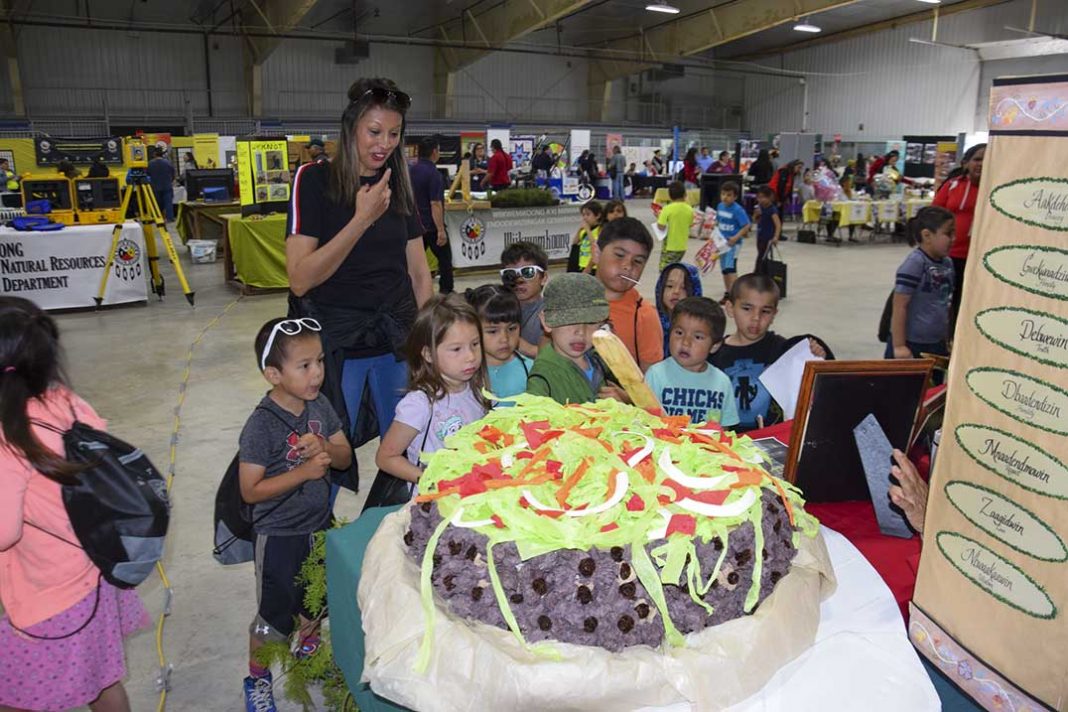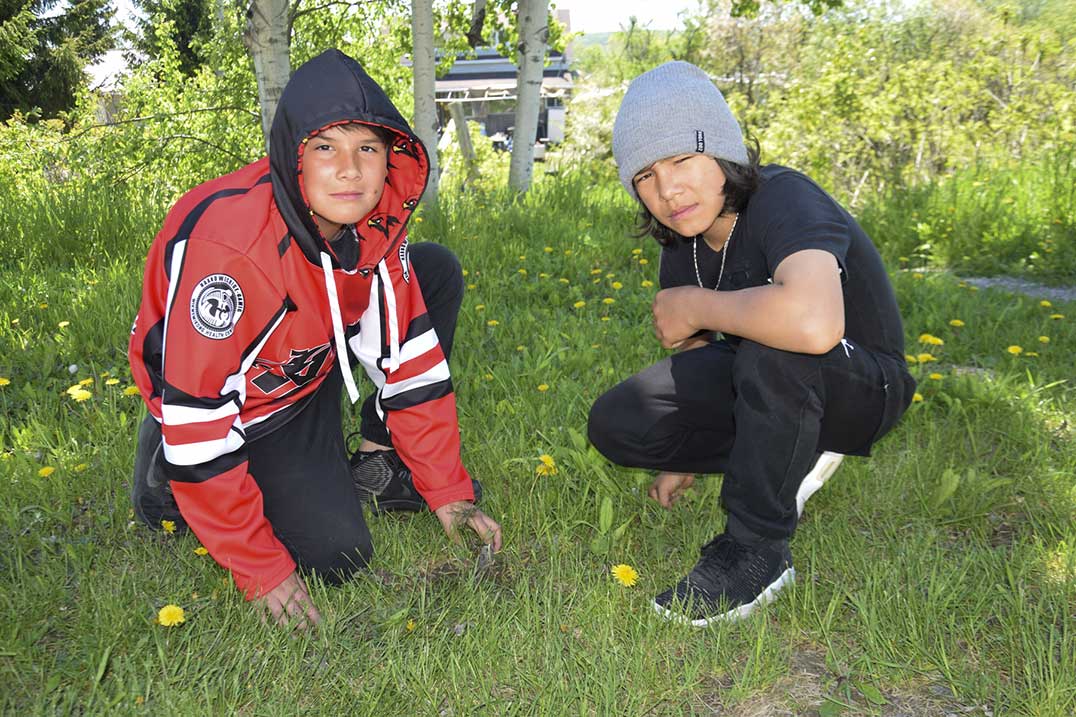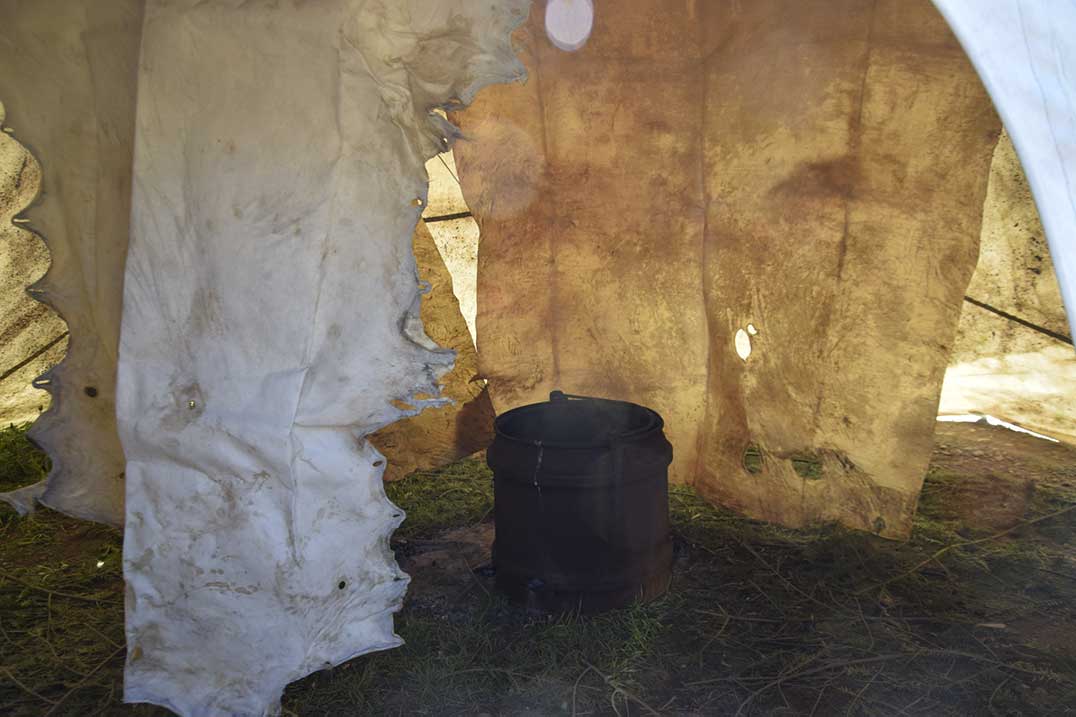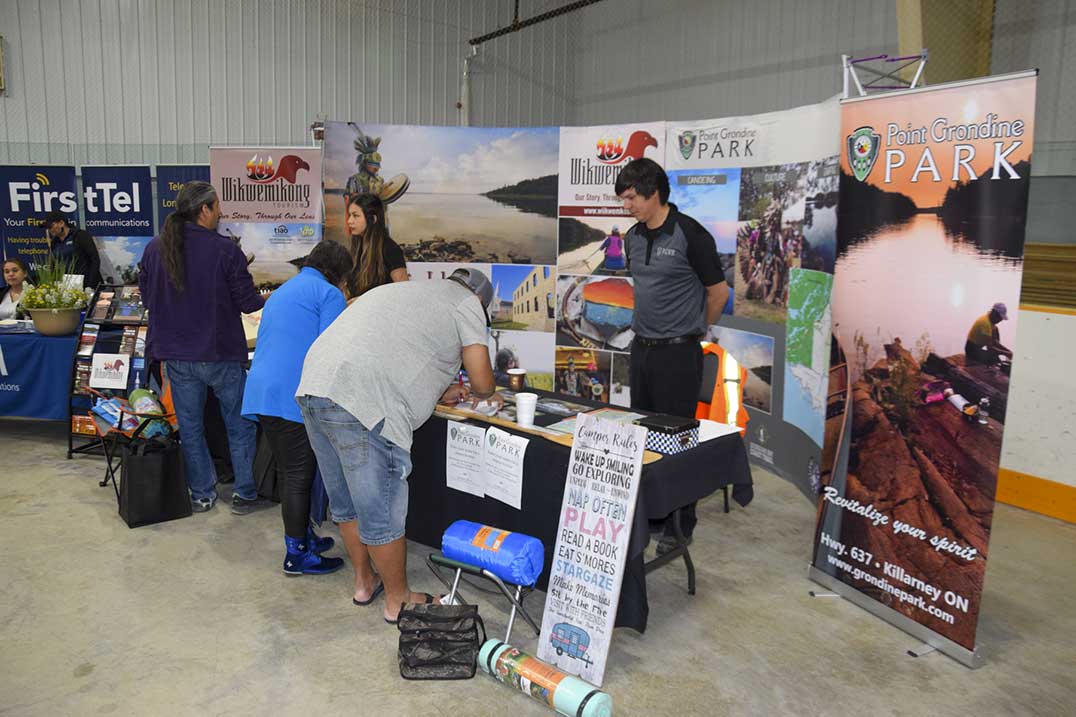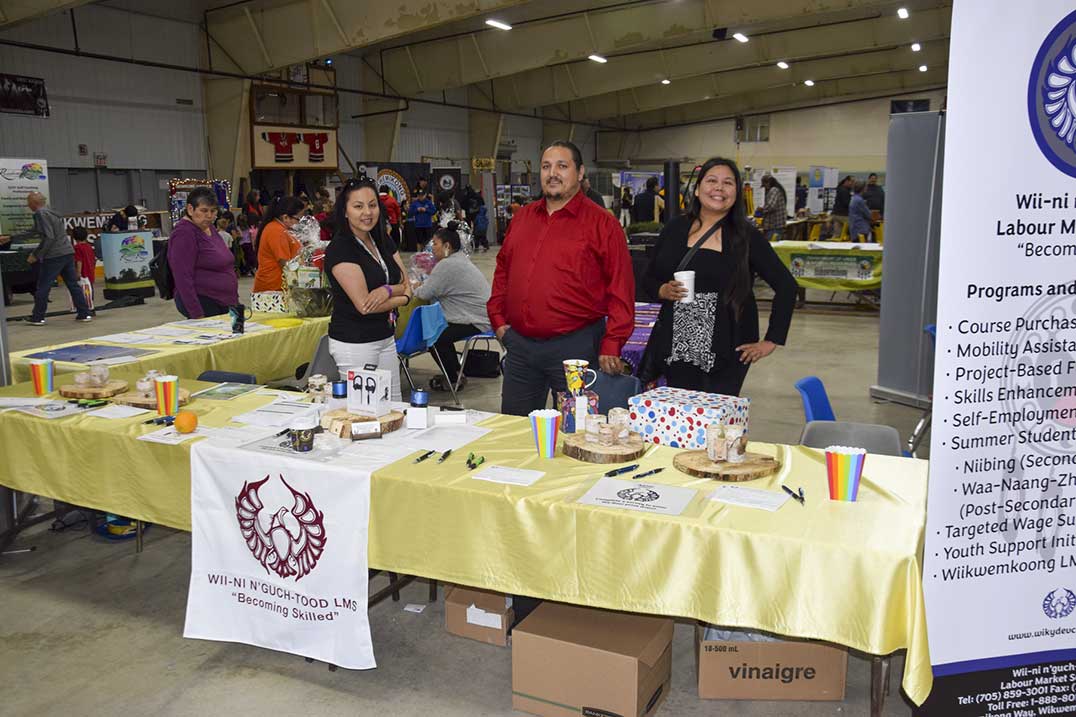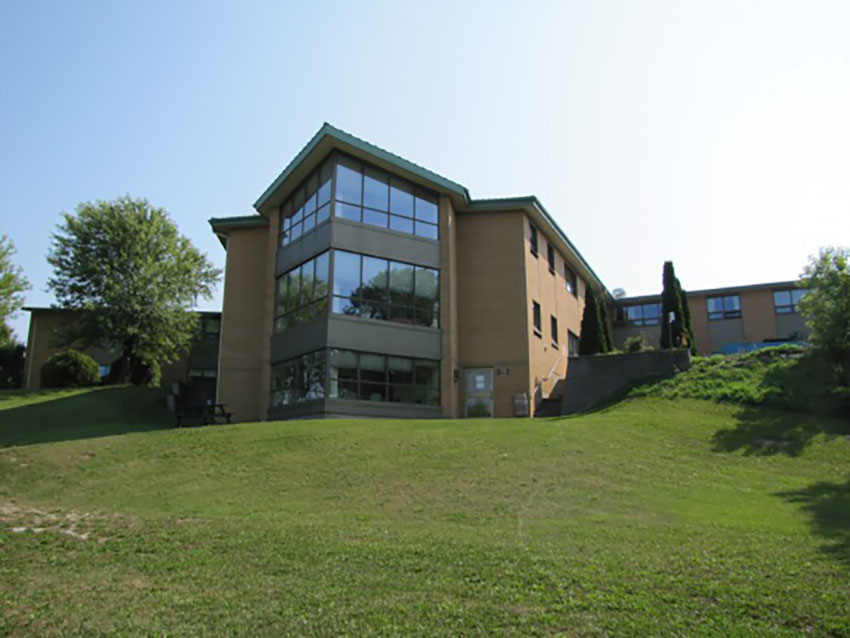WIIKWEMKOONG – Communication is key to building healthy communities and 33 of the Wiikwemkoong band departments and programs put their A game on display during the 2019 Wiikwemkoong Unceded Territory (WUT) Open House held June 6 and 7.
“We are really happy with the turnout,” said organizer Cheryl Fox Peltier. “I have a great committee that helped put this together.”
Ms. Peltier explained that all of the band departments create their annual action plans and then come to the open house to share those plans. “It’s ‘come in, this is what we are doing’,” said Ms. Peltier.
Included in the open house process is a customer survey. “The survey lets community members highlight and review one of the services,” said Ms. Peltier.
A series of presentations took place in the upstairs hall at the Thunder Dome Arena throughout the two-day event, covering a wide range of topics including an in-depth presentation on the band’s proposed Land Code where both the presenter and Ogimaa Duke Peltier fielded questions about the code, debunking several misconceptions and concerns that have arisen in reaction to the process. Ogimaa Peltier stressed that the new land code is being developed by the community, for the community and that the community will have the ultimate say on whether the new code will be implemented.
Another example of the presentations was a morning session by the Wikwemikong Nursing Home, where community members were updated on what is happening there.
“We are still learning,” said Ms. Peltier, who noted that although the open house was going smoothly the lack of a sound system in the lower display area is something they will address for next year’s event. “It’s hard to let people know what is going on upstairs,” she said. “We have it all posted on the wall inside, but people still miss it. Lesson learned.”
Even without the heads up of a downstairs sound system the presentations were well attended.
Meanwhile, over at the Lands building, a traditional hide tanning demonstration was live with facilitator Dolores Chum. Ms. Chum took visitors through the process of tanning hides in a traditional way. The result is a hide without the chemical smell that is typical of modern tanned hides.
“It is a long process,” she admitted, “but the result is a much better hide that lasts longer and doesn’t have that chemical smell.” Instead, a sweet and gentle woodland aroma wafts from the traditional hide once it is completed. The traditional process uses moose brains and various woods and ashes to preserve the hide. “Some people add chemicals,” said Ms. Chum, “but we stick to the traditional methods. The chemicals tend to weaken the hide.”
Many of the traditional skills tend to be complementary to a modern lifestyle, said Ms. Chum. “When you get out on the land you make a connection that helps your stress drop away.”
Most, if not all, of the programs were being presented in both English and Anishinaabemowin as part of a holistic approach to language retention and strengthening in the community.
The Wiikwemkoong Dbendaaswin (Estates) program brochure notes “Ngii zhitaame wii naadimaagoyin maanjigo pii gii zhiitaayin (we are ready to help whenever you are ready).” The organization assists with wills, including writing, secure storage, appointment of administrators (they will act as administrators of last resort if needed), explaining the process of estate administration and the researching of the history of lands and families—they even do house calls.
The WUT Open House demonstrates clearly that the honouring of traditions, culture and languages are not only mutually exclusive with living in the modern world, but complementary to living that life in a good and healthy way.

